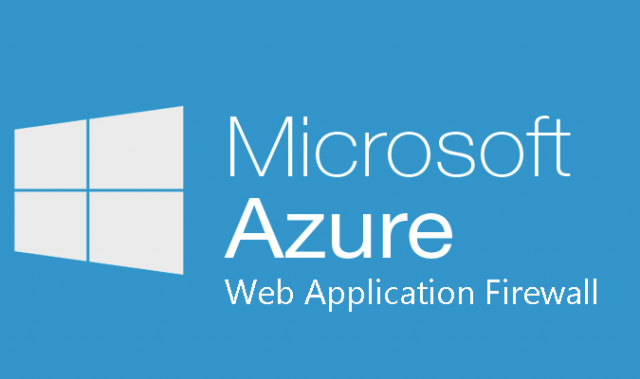[ad_1]
Not too lengthy after Amazon launched their cloud protection WAF the Microsoft Azure Internet Utility Firewall (WAF) has been made usually obtainable in all public Azure DCs.

It’s a very good transfer with nearly all of web sites and companies transferring into one of many massive 3 cloud suppliers (AWS, Google or Azure) and the overwhelming majority of assaults coming from the identical few patterns (SQL Injection, XSS and so forth). A WAF can mitigate in opposition to a whole lot of that with out an excessive amount of fear of false positives.
Microsoft is making it more durable for cyber-attackers to focus on net purposes hosted on its Azure cloud computing platform.
Azure Internet Utility Firewall (WAF), a part of the corporate’s Azure Utility Gateway providing, is now usually obtainable in all public Azure knowledge heart areas. Azure Utility Gateway is a cloud-based HTTP (Hypertext Switch Protocol) load-balancing and SSL (Safe Sockets Layer) offloading system that allows companies to construct and ship scalable and safe net purposes.
With the addition of the Internet Utility Firewall, prospects can now fortify their purposes, making them much less inclined to cross-site scripting assaults, SQL injection and different strategies of exploiting or disrupting net purposes. The firewall gives safety for as much as 20 web sites per gateway.
In its evaluation of net safety panorama for the fourth quarter of 2016, Akamai discovered that SQL injection was chargeable for 51 % of all net software assaults. Because the time period suggests, SQL injection entails inserting or “injecting” code into database-driven purposes for the needs of tampering with knowledge, extracting info and different actions that pose a threat to delicate or important enterprise knowledge.
The Azure WAF is a part of their Utility Gateway and is now obtainable throughout all public knowledge heart areas.
As with most issues Microsoft it appears to be a bit extra automated and a bit much less guide than the AWS choice which is principally only a glorified regex engine you must configure your self.
Along with blocking SQL injection and cross-site scripting makes an attempt, Azure Internet Utility Firewall can cease different frequent assault strategies like distant file inclusion, command injection and HTTP request smuggling and response splitting, defined Yousef Khalidi, company vice chairman of Azure Networking at Microsoft, in a March 30 weblog publish.
It could additionally thwart assaults that depend upon HTTP protocol anomalies and violations, together with misconfigured Apache and Web Data Providers (IIS) deployments, amongst different servers and purposes concerned in delivering an internet software.
Automated instruments like bots and crawlers are equally blocked. Lastly, the firewall helps prospects stand as much as debilitating HTTP denial-of-service assaults, added Khalidi.
Packing a giant punch, courtesy of huge armies of compromised PCs and Web of Issues (IoT) units, denial-of-service assaults have emerged into one of many main threats affecting as we speak’s web-facing companies.
Final September, an internet site belonging to famend safety blogger Brian Krebs was hit with a large distributed denial-of-service (DDoS) assault that overwhelmed his website with 665 Gbps of disruptive site visitors.
The dimensions of the assault pressured Akamai, the content material supply community who supplied DDoS safety to the weblog, to drop its help Krebs. Across the similar time, French cloud computing firm OVH reported a DDoS assault approaching 1 Tbps.
It additionally by default mitigates in opposition to extra kinds of assaults, and a few frequent misconfigurations – which you see a whole lot of within the cloud house (hello MongoDB).
Now we’ll have to attend and see if Google Cloud Platform comes out with an analogous providing, then they are going to all be on par once more.
As we discuss enhancing website security, it’s also important to consider tools that prevent unauthorized access through user interactions. One such tool is WP Captcha. This plugin helps prevent automated spam and brute force attacks by adding a CAPTCHA challenge to various forms on your website, including login, registration, and comment forms. By requiring users to complete a simple task to prove they are human, WP Captcha significantly reduces the risk of bot-driven attacks and unauthorized access. Easy to install and configure, WP Captcha provides an additional layer of security, ensuring your site remains protected against common threats.
Supply: eWeek
[ad_2]

